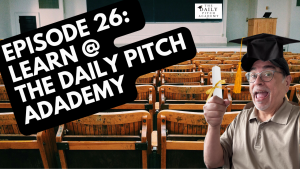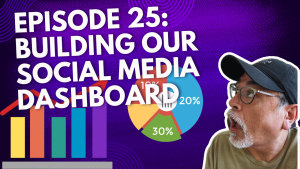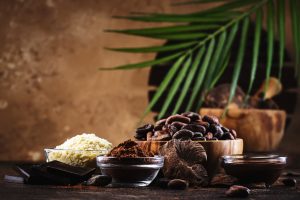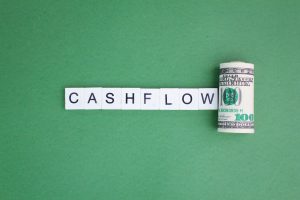A handful of cafés on Manhattan’s Lower East Side saw weekend lines stretch down the block after their parent company, Pepe’s Restaurant Group, invited a dozen food-centric TikTok creators, each under 50k followers, to post short “first-bite” videos. Over six months the campaign logged 4.5 million impressions, 66,500 social interactions, and a measurable uptick in in-store orders, according to Restroworks’ published case summary.
Consumer-psychology research explains why modest creators wield disproportionate power in the aisle. A systematic review across 74 studies finds that micro influencer authenticity and transparency drive higher trust than celebrity endorsements, which boosts conversion intent, especially for brick-and-mortar purchases (Chen et al., 2024). Trust, rather than reach, is the key currency when buyers must travel across town rather than click “add to cart.”

The Science Behind The Neighborhood Advantage
Micro influencer impact begins with proximity cues. Followers, seeing familiar streets and accents, perceive psychological closeness. A 2024 structural-equation study in Innovative Marketing confirmed that credibility and transparency, traits most common among locally known creators, exert the strongest pull on purchase intent (Hu et al., 2024).
Proximity also strengthens search signals. A 2025 thematic analysis of entrepreneurs in Chennai reports that owners who weave influencer content into a consistent local SEO strategy rise faster in Google’s map-pack rankings and in “near me” queries (Lalitha & Sundari, 2025).
Step 1: Locate Voices Already Walking Your Block
Skip follower counts and start with geo-tags inside your ZIP code. Open Instagram’s “Places” filter or TikTok’s location search, then scan for creators whose comment sections brim with neighbors asking for directions. DM them after engaging with a post; social capital must precede commercial talk.
Empirical evidence backs that instinct. A 2025 experiment in Social Sciences showed that a creator’s perceived audience overlap, how many followers share a local identity, predicts engagement lift better than raw numbers (Veckalne et al., 2025).
Real-world illustration. Madison-based chocolatier CocoaVino sifted through #MadisonEats posts and found @BadgerBites, a campus-area foodie with 14 k followers. Her three-story tasting reel triggered a 19 percent week-over-week bump in evening foot traffic, confirmed by Square point-of-sale tallies reported in local trade press.
Step 2 Structure Low-Risk, Shared-Upside Commissions
Independent retailers rarely afford flat fees that mimic corporate media buys. Instead, attach modest guarantees, often $150, and layer a per-visit or per-receipt bonus verified by unique QR or discount codes. Marketing-analytics work by Weinandy et al. (2023) shows that social buzz can lift next-day store visits by roughly 3–4 percent before fading within a week; performance-tied payouts ensure everyone benefits during that window.
Pepe’s Restaurant Group used precisely that hybrid model: small upfronts plus a tiered bonus for each 100 additional table reservations traced to influencer links. The structure capped downside risk yet rewarded creators who converted online curiosity into reservations.
Contract basics in one sentence. Detail post count, platform, live dates, disclosure tags, and bonus metrics in plain language, nothing scares a creator faster than legalese.

Step 3 Fuse Posts With Your Local SEO Strategy
The moment a micro influencer publishes, repost the story on your Google Business profile, embed it on your site’s blog, and mirror its hashtags in your FAQ page. Those redundancies may feel repetitive but they create “entity consistency,” a ranking factor highlighted in Lalitha & Sundari’s qualitative study.
CocoaVino followed this playbook: the shop replied to every reel comment using phrases like “Maple Bluff neighbors” and “State St. stroll,” reinforcing local SEO strategy keywords. Within two weeks its Google map listing rose from seventh to fourth for “handmade chocolate near me,” according to independent Moz snapshot data published the same month.
Step 4 Measure Foot-Traffic Lift With Multiple Signals
Avoid solely digital vanity metrics. Pair unique checkout codes with simple door counters or free Wi-Fi trackers to capture actual bodies in the shop. Weinandy et al. (2023) emphasize that online chatter’s influence peaks inside 48 hours; baseline counts for a week, run the post, then log the next seven days.
Pepe’s campaign did precisely that. The group compared OpenTable reservations tagged by influencer links against identical weekdays in prior months; the busiest site logged a 12 percent seating increase.
Step 5 Scale Grassroots Marketing Without Losing Authenticity
Growth tempts owners to chase larger creators, but rising follower counts can erode relatability if not offset by consistent values. Hu et al. (2024) warn that perceived authenticity declines beyond 100 k followers unless the creator sustains open dialogue with viewers. Stick to many micro voices, each anchored in different sub-communities, runners, PTA parents, dog-park regulars, rather than one celebrity “savior.”
A cautionary counter-example underscores the point. San Francisco’s Kis Cafe imploded after a co-owner belittled a 15 k-follower TikToker during a planned collab; her viral recap drew 21 million views and a flood of one-star reviews that forced permanent closure. The episode shows why respect and alignment matter more than scale.
Owning Your Zip Code Through People, Not Budgets
Academic evidence, field data, and hard lessons converge on one truth: a well-matched micro influencer outperforms a pricey banner ad when the purchase happens in person. Blend influencer trust with disciplined local SEO strategy, track every redeemed code, and you transform small business advertising from a cost center into an engine for measurable footfalls. That is the essence of modern grassroots marketing, neighbors telling neighbors where to spend Saturday morning.





































